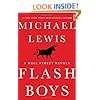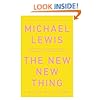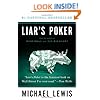



The Buy Side: A Wall Street Trader's Tale of Spectacular Excess Paperback – June 17, 2014

Don't have a Kindle? Get your Kindle here, or download a FREE Kindle Reading App.
Product Details
Would you like to update product info or give feedback on images?.
|
Editorial Reviews
Amazon.com Review
Q&A with Turney Duff
Q. When you had big money coming in, you were spending as fast as you got – sometimes on bizarre over-the-top purchases. As a small-town kid from Maine, did you ever look in the mirror and say, “What the heck am I doing?”
A. Yes, but I probably didn’t use the word “heck.” I would have moments where I’d say to myself “I can’t believe this is my life,” which likely only added to the excess. My attitude was, “What’s the point of making a lot of money, unless you’re going to enjoy it?’” so I tried to enjoy it. Conversely, when I was bottoming out, I constantly was saying to myself, “What happened?” The real danger comes when people start equating net-worth to self-worth.
Q. You seem to have been the Einstein of networking, a guy who made being a party animal work for him in a big way. Why do you think the social aspect of Wall Street came so easy, and did it startle you when you realized that having a high social I.Q. could be more profitable than “reading the tape” or being a quant?
A. I’m flattered but, please, I wasn’t the Einstein of anything. I just didn’t have any other skill to rely on and I’m very social by nature. There’s no magic to it, I just treat people the way I’d like to be treated. But I don’t think I ever had an “ah ha” moment where I realized this was the key to success. I just knew that whatever I was doing was working, so I kept doing it. I guess this could add to the I.Q. vs. E.Q. debate. (Oh, and by the way, I understand Albert was also a big fan of shaking the snow globe.)
Q. You worked for Raj Rajaratham, who was convicted of insider trading on an unprecedented scale. Do you think that insider trading is endemic to Wall Street’s culture?
A. I can only speak to what I saw and experienced but I think it’s headed in the right direction now. When I was placing bets on the market, Wall Street had convinced itself that the area of insider trading was very grey. It felt like a victimless crime. The thinking went, to compete you have to bend the rules. It’s not all that different from the steroid era and Major League Baseball. There are a lot of guys whose careers have asterisks next to their earnings. As long as there’s big money at stake people are going to cheat. That’s not only how Wall Street works, that’s how the world works. But with the spotlight now on Wall Street it’s harder for inside traders, and it’s getting harder all the time.
Q. Has Wall Street grown less trustworthy? Should we credit what those in power have to say about their integrity?
A. Believe it or not, there are plenty of people with integrity on Wall Street. I was there during 9/11, and there wasn’t a more courageous and patriotic place in the country. Ironically, as more negative press comes out we should probably trust the trading community more. The jig is up. Sure, we’ll still see some bad guys get taken down now and then, but my guess is, the majority of people are playing by the rules. It’s all fear-based now.
Q. The book describes in vivid detail some of your most vulnerable moments – truly jaw- dropping addiction. At what point did you realize that, without help, you’d be unable to pull out of your downward spiral?
A. I made the decision a year after my first rehab that I was only going to relapse once. I knew that I couldn’t just have one, or party just a little, so I told myself that I would blow it out one night and then get back to recovery. After that night I told myself I was allowed to relapse once a month, very private and nobody gets hurt. Soon after, I told myself that I could party twice a month and before I knew it I was right back where I was before rehab—even worse. So by the fall of 2008 I knew there was no end in sight. Something was going to break, but I didn’t have the courage to stop it myself. I had to crash.
Q. Ultimately, what pulled you back from the brink and made you say no to Wall Street’s seven-figure seduction was your daughter. You don’t hold much back. Do you worry how she’ll view the book when she’s old enough to read it?
A. The two people I wasn’t sure I wanted reading this book were my daughter, Lola, and my mom. But once I decided to write it I was fully committed. I can’t predict what my daughter will eventually say, but at the very least she’ll know I was honest. All I can do is show her my love every single day. It only took my mother a week or so to digest the book. Now she’s my biggest supporter. She says she’s proud of my honesty and courage. I hope that’s more than a mom’s take.
From Booklist
More About the Author
I was born in Cleveland in 1969 (which explains the tattoo of Chief Wahoo, the Indian's mascot, on my ankle), but moved to Kennebunk, Maine when I was only 7. Kennebunk is a nice place to visit and an even better place to grow up, which, of course, means I couldn't wait to get out of there.
I graduated from Ohio University's E.W. Scripps School of Journalism in 1993 and then moved to New York City with one-month's rent to my name. I was going to be a journalist. I wanted to write. But one-month's rent isn't enough to become a journalist in New York, so I found out. It's not enough to become just about anything in New York except maybe a homeless person. Luckily, I guess, my uncle gave me a couple of phone numbers to call-his contacts on Wall Street.
Though Wall Street wasn't in my plan, once I was there I figured what the hell? Let's make some money. So I set my sights on a trading career. But during those fifteen years of climbing the Wall Street money tree, writing would call to me, like a whisper somewhere in the back of my thoughts, but, never forceful enough for me to focus on it or sit down long enough to truly pursue.
It would take nearly a complete disaster in my life, self-inflicted by city lights and fondness of cocaine for me to turn back to the page. But it took what it takes, and I'm grateful it did.
Now I'm right back where I started with a month's rent saved up and an empty computer screen in front of me and I couldn't be happier. Oh yes I could. And am. When I'm with my eight-year-old daughter, Lola.
Customer Reviews
Most Helpful Customer Reviews
The thing that I think I loved the most was that it was a really unique perspective that most people wouldn't have a lot of access to. I don't know people that make 2 million dollar bonuses, so it was fascinating based on that alone. I also don't know much about the world of finances or Wall Street, so that was also fascinating (and disturbing).
I also really appreciated the chronology. You become lured into his drug addiction just like he was. He believed he could quit and as you're reading it, you do too. It's written so that you become attached to the people involved and experience his life as he's experiencing it. I loved the honesty. He gives you enough detail to make it real but not so much that you feel like you're looking at him naked - it's a balance that's difficult to achieve and he did it flawlessly.
The writing is perfect. Sometimes the story carries the writing and sometimes the writing carries the story, but this had both. He nailed it.
I would say the only disappointment I had was (spoiler alert) that he didn't end up being able to reconcile with his daughter's mom. But that's not really the book so much as the story and I'm a sucker for happy endings. He handles it well though, and you can totally see why the relationship fell apart.
Overall an amazing book that I'll recommend to everyone I know. Well worth the read.
As he became successful there were wild parties with alcohol and girls and eventually cocaine, lots of cocaine. He lost control, quit before he was fired, went into rehab, recovered built his career back and became addicted again, went into another rehab and hopefully is now clean and will remain so. But - as he mentions at the end of his book - he has lost his money, wrecked his marriage, shares custody of his daughter and is not sure what the future will being.
Why three stars? I took away one star because he did not reveal as much as I expected he would about the shenanigans of Wall Street Trading. He does mention stuff like how brokers he places orders with routinely 'front run'. That is, they buy stock in the same companies BEFORE they execute his order, his big order drives the price up and they then sell at a profit. This is a practice both illegal and routine. He also has an interesting anecdote about how he was able to get his own back on one such trader by placing a big order with her to be executed at a specific time, waiting for her and her friends to front-run and buy the stock for their accounts, and then canceling his order.Read more ›
But this latest version of the plot is actually more personal and less about Wall Street as the problem, although in the end, he comes to the conclusion that he can't work there anymore and survive as a human being. But in this case, the book was written more or less as therapy, in an attempt to come clean and stay clean. Turney Duff developed a major cocaine addiction, and destroyed his relationship with the mother of his child along the way. His downfall also happened to coincide with the 2007-2008 meltdown in the financial markets, so he also lost his %$2 million dollar home, which went underwater almost as soon as he (inadvisedly) bought a mansion 2 hours away from where he worked.
However, this is not just "guy from the hood finds religion and stops using." This is advertised as "A Wall Street Trader's Tale of Spectacular Excess," and so there is plenty of ammunition here for anyone who questions why a guy on Wall Street should be paid a million dollars a year or more. Duff majored in journalism, and he came into the business of trading on Wall Street with no background and no special skills.Read more ›










